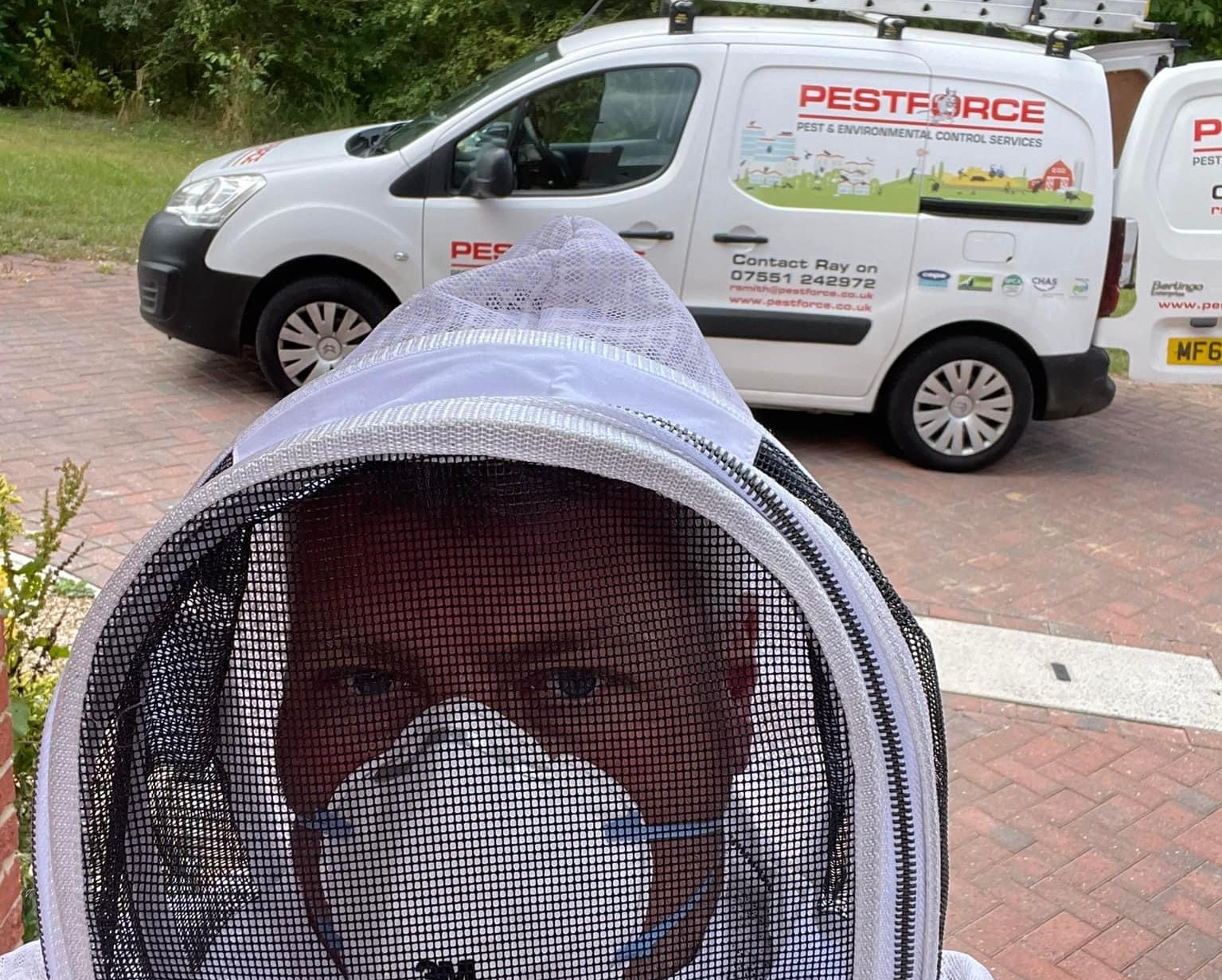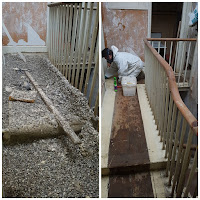
How to Get Rid of a Wasp Nest (2025 Guide)
Key Takeaway
The
most effective and safest way to remove a wasp nest in 2025 is to contact a
qualified pest control professional. DIY solutions such as boiling water,
supermarket sprays, or homemade treatments are not only hazardous, but may also
be illegal under UK pesticide regulations if used improperly.
Is It Safe to Remove a Wasp Nest Yourself?
It’s
understandable why homeowners consider removing a wasp nest themselves—quick
fixes feel tempting. But the risks are significant:
- Wasps respond aggressively when threatened, often
stinging in large numbers.
- Allergic reactions to stings can be life-threatening, particularly for
children or the elderly.
- Insecticides can be bought by non-professionals, but if used
inappropriately, you could breach UK law and pose health risks to
others in your home.
Fact:
A typical nest can house up to 5,000 wasps by late summer. Towards the
end of the season, wasps become increasingly aggressive as they seek out sugars
from fruit and human food.
“Wasp
nest removal is not a job for DIY. A trained technician knows how to assess and
treat nests safely, in line with UK laws, and effectively.”
— Natalie Bungay, Pestforce UK
Signs You May Have a Wasp Nest Nearby
Here’s
how to spot a nest early:
- Wasps frequently flying in and out of brickwork
holes, roof tiles, sheds, or air bricks
- Increased activity around bins, compost, or
garden eating areas
- A constant buzzing sound from inside cavity
walls or ceilings
- Visible nests: grey, papery structures found in
lofts, eaves, garages, trees or bushes
(Do not disturb or inspect nests closely.)
Fact:
Wasps chew wood into a pulp to construct their nests, giving them that distinct
grey, paper-like look.
How Professionals Remove Wasp Nests (Step-by-Step)
Pestforce
technicians follow BPCA best practices and are trained and qualified to
use specialist insecticides unavailable to the public.
1. Inspection & Risk Assessment
The
technician identifies the nest location, confirms the species, and evaluates
access and risks to determine the safest approach.
2. Application of Insecticide
- If the nest isn’t accessible (e.g. behind
brickwork), we use a specialist dust insecticide applied to the
nest’s entry point using an extendable lance. Wasps carry the dust inside,
eliminating the colony within 24–48 hours.
- If the nest is visible and accessible, such as in a loft, the
technician will assess and apply the most effective formulation—aerosol,
liquid or dust—depending on safety and access.
You’ll
be advised to stay away from the treatment area until activity has
ceased.
3. Follow-Up and Monitoring
If
wasp activity continues beyond a few days, the technician will assess and, if
required, recommend further treatment.
FAQ
Answered: Will wasps return to a treated nest?
No. Once the queen and colony are dead, the nest becomes inactive and will not
be reused.
Fact:
Wasps never reuse old nests, but a new queen may build in a nearby spot
the following year.
What Happens If You Leave a Nest Untreated?
While
some hope the issue will resolve on its own, an untreated nest can cause:
- Rapid colony growth—up to 10,000 wasps by late
summer
- More aggressive behaviour as the colony declines
and wasps become intoxicated from overripe fruit
- Greater risk of accidental stings, particularly
near doors, patios or bins
- A serious hazard for families, pets, and tradespeople
FAQ
Answered: Will a wasp nest go away on its own?
Technically yes—most die off by winter—but this could mean months of risk
and nuisance.
What’s the Best Time to Remove a Wasp Nest?
Early
morning or evening is typically safest, as wasps are less active.
However, trained professionals can treat nests safely at any time of day,
using the correct tools and precautions.
Costs of Professional Wasp Nest Removal in 2025
|
Service |
Typical Price Range |
|
Standard Nest Treatment |
£80 – £165 |
- Prices vary within Pestforce
- No hidden charges
- Fixed prices agreed before any work begins
- Payment accepted by card or online transfer
Why Choose a BPCA-Approved Pest Controller?
- All Pestforce technicians are DBS-checked, insured, and
local
- Professionally trained and CPD-registered via the BPCA
- Access to specialist, regulated insecticides
- Over 25,000 verified five-star reviews nationwide
- Rapid response from a network of local experts
- Comprehensive public liability insurance
Fact:
Only certified professionals are legally allowed to use certain powerful
insecticides for wasp control in the UK.
Book Your Local Pestforce Wasp Control Expert
To
schedule an inspection or get a quote:
- 📞 Call: 0333 567 0577
- Or please use our find technician tool / contact form near the bottom of this page.
Frequently Asked Questions
How many wasps live in a typical nest?
Anywhere
from 5,000 to 10,000 by peak season in late summer.
What’s the purpose of a wasp?
Though
feared, wasps are beneficial: they pollinate plants and hunt small pests
such as aphids and flies.
Can I prevent wasps nesting next year?
Prevention
is difficult, but early detection and treatment can help avoid nests
establishing again in the same area.
Should I destroy an old, empty nest?
Not necessary, as it won’t be reused—but if it’s in a problematic location, removal may be sensible.
11/07/2025
Written By Natalie Bungay, Pestforce Technical Director
Former Technical and Compliance Manager at BPCA

Spider Misery of Tenant Resolved Through Heat Treatment
Imagine being eaten alive by spiders....!!
It was an extreme case, but Russell had been living with a Spider nightmare for nearly 2 years.
His mental wellbeing, along with his body were in tatters............ and the cause...?
False Widow Spiders....!!
Russell's case was so severe he had resorted to either living with friends and family or camping in his garden, and despite repeated attempts to resolve the issue, Russell just couldn't find peace.
And when he couldn't get any further with support from his landlord he was left with the realisation that he may have to give up his home.
However, last week Pestforce and our partner Thermokil carried out a full Heat Treatment of Russell's flat - Free of Charge - so that Russell could finally find peace at home.
Check out this video to see the full story and hear from Russell himself....
So how did Pestforce get involved...?
The story was picked up in the local media channels and Carl Nickson the local representative for Pestforce (www.pestforce.co.uk/tonbridge/) was called by the BBC for some expert opinion and advice.
Carl then turned to request help from Phil Shaw, Technical Director for Pestforce.
Phil appeared on BBC South and Radio Kent sharing his knowledge of the spiders with listeners. Phil also had the opportunity to hear directly from Russell in terms of the nightmare he had endured.
That interaction and discussions sparked an idea.....!!
Following this initial interaction with the BBC the team at Pestforce decide that they needed to take action following one of their core values.... to Help Others Not as Fortunate as Ourselves.
This normally manifests with donations to charity which over the years has included Help for Heroes, Cancer Research and Rain Forest Concern.... with sponsored runs, swims, fishing, general donations etc..
With some of the normal options limited for the last few years the management team decided that they could help find the right outcome.
So by sharing the financial burden with Thermokil and also using the job as a learning exercise for 2 locally based technicians Pestforce made an offer to Russell.
Pestforce MD, Sean Taylor, said, "it is a nice feeling to be able to help Russell and, in addition, provides a great feel good feeling in our business and the wider public. I'd say that is a great investment for the right reasons, and we will consider offering this type of thing in the future. To be honest I would rather invest in these initiatives, helping others and get some good PR than invest in some corporate advertising initiative. And we will probably get a better return."
What is Heat Treatment...?
As you would expect from the name.... it is the use of heat to remove all life cycle stages of a pest. Heat treatment is used for most insect species and can be done without the use of harsh chemicals.
The service uses special heating devices that have to raise the temperature in treated area to a certain level and maintain it for a period of time.
There can be a fair bit of preparation required for the treatment to make sure it is safe and effective. And, there can be some cases where a limited amount of chemical is used to be especially diligent.
Pestforce Pest Control is a growing household name in the UK. We are all about trust and delivering great local service through our local technicians. We have over 12,000 online reviews therefore we have a growing reputation to maintain and protect.

KEEPING YOU SAFE and PEST FREE
Your Protection - Disinfecting Services
Call 03335 670577
We cannot emphasise enough the importance in self distancing - regular sanitising of touch points (all areas) in your offices - factories - company vehicles, the importance of thoroughly washing you hands for a minimum of 20 seconds on a regular basis.

Coronavirus - Disinfection service available
However, some people at very anxious and want some added peace of mind to protect themselves or someone considered vulnerable or at risk.
But “deep clean” is the wrong terminology. You need a disinfection clean.

COVID 19 - Looking after Your Well-being
PROTECTING OUR CUSTOMERS: COVID-19
We are still business as usual during
these challenging times! We are taking every precaution and following
government guidelines to
reduce risks to YOU and our TEAM. All our technicians are highly trained and
well equipped to continue delivering our pest and environmental
services. Where possible and practical our technicians may offer video
diagnostics as an alternative to provide help and support.
We are entering uncertain times as COVID-19 is spreading fast. We all have a
responsibility to everyone in our Community, Work place, Schools and Business
to ensure we do what we can to reduce the spread of the Virus. If you are a
Business, School, Care Home, Homeowner, Property Manager or Public Transport
Organisation, we can and want to help! We are equipped with tested products
that will disinfect, decontaminate and kill Coronavirus in domestic and
commercial properties as well as vehicles.
Our products already eliminate a list of bacteria and
viruses, relating to pest and environmental issues. We can now add Coronavirus
to this list. COVID-19 falls within
the same category as other viruses we are already able to treat. Manufacturers
& scientists are confident that our products are effective against
coronavirus. We deal with dangerous viruses and bacteria on a daily basis. We
use Ultra Low Volume (ULV) Space Spray and Fogging machines, which apply a
consistent and even application of the decontamination product. It also allows
us to disinfect / decontaminate a property much faster than conventional deep
cleaning.
Please
feel free to continue to contact us for advice and support or further
information.
Correct Cleaning of property to protect against Coronavirus or if some is infected

How to clear up Pigeon poo (guano)
The team travelled to the Isle of Wight at the request of one of our key accounts and spent the week scraping, shovelling, removing waste and scrubing.
The property conditions really were bad and a major health hazard.
Check out the photos below - taken by the team to show the results of their efforts.

False Widows in the News
https://bpca.org.uk/a-z-of-pest-advice/false-black-widow-control-bpca-a-z-of-pests/189075

Do you have spiders in your home?
With anything though it is important that you call a fully qualified and accredited professional. Here at Pestforce we are always happy to help.























